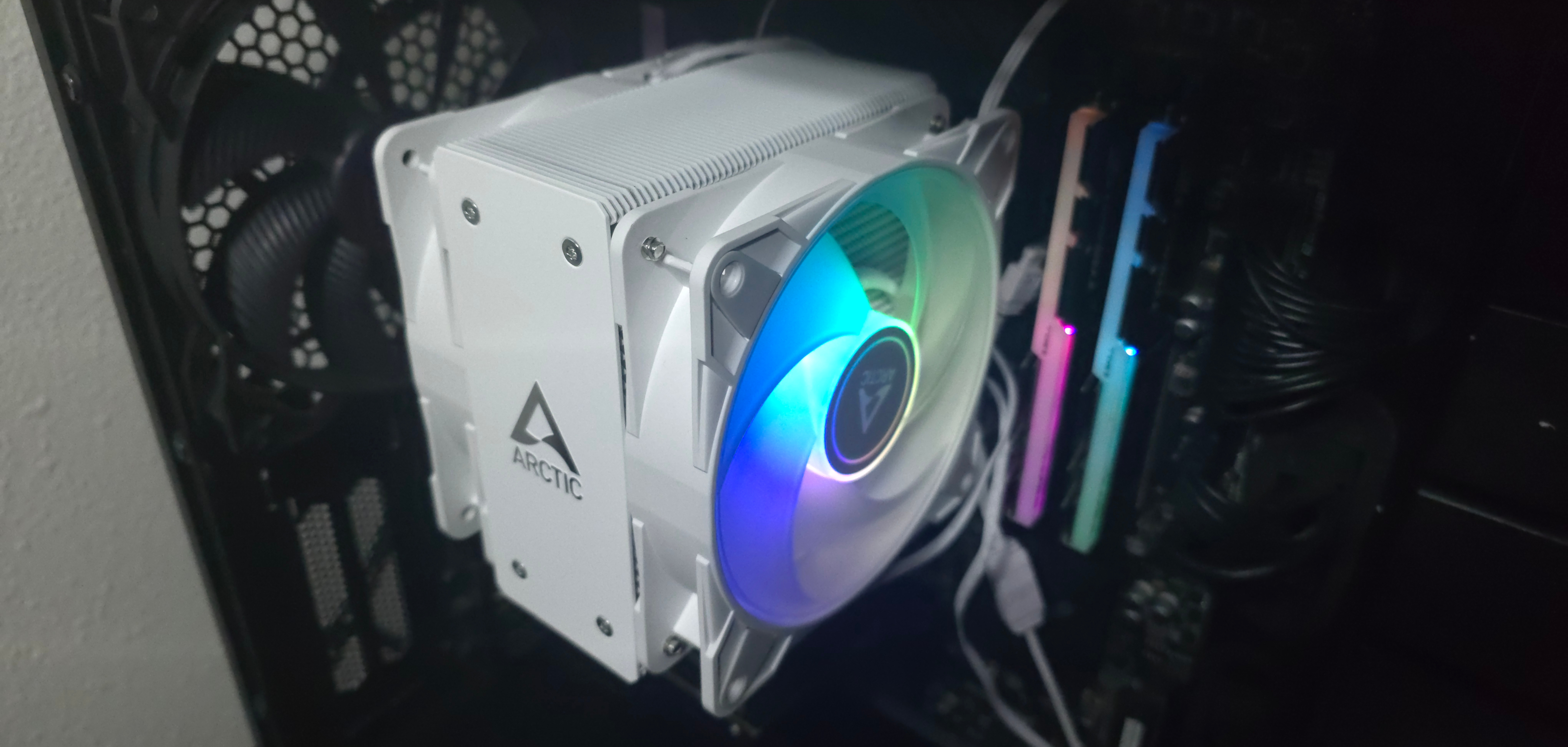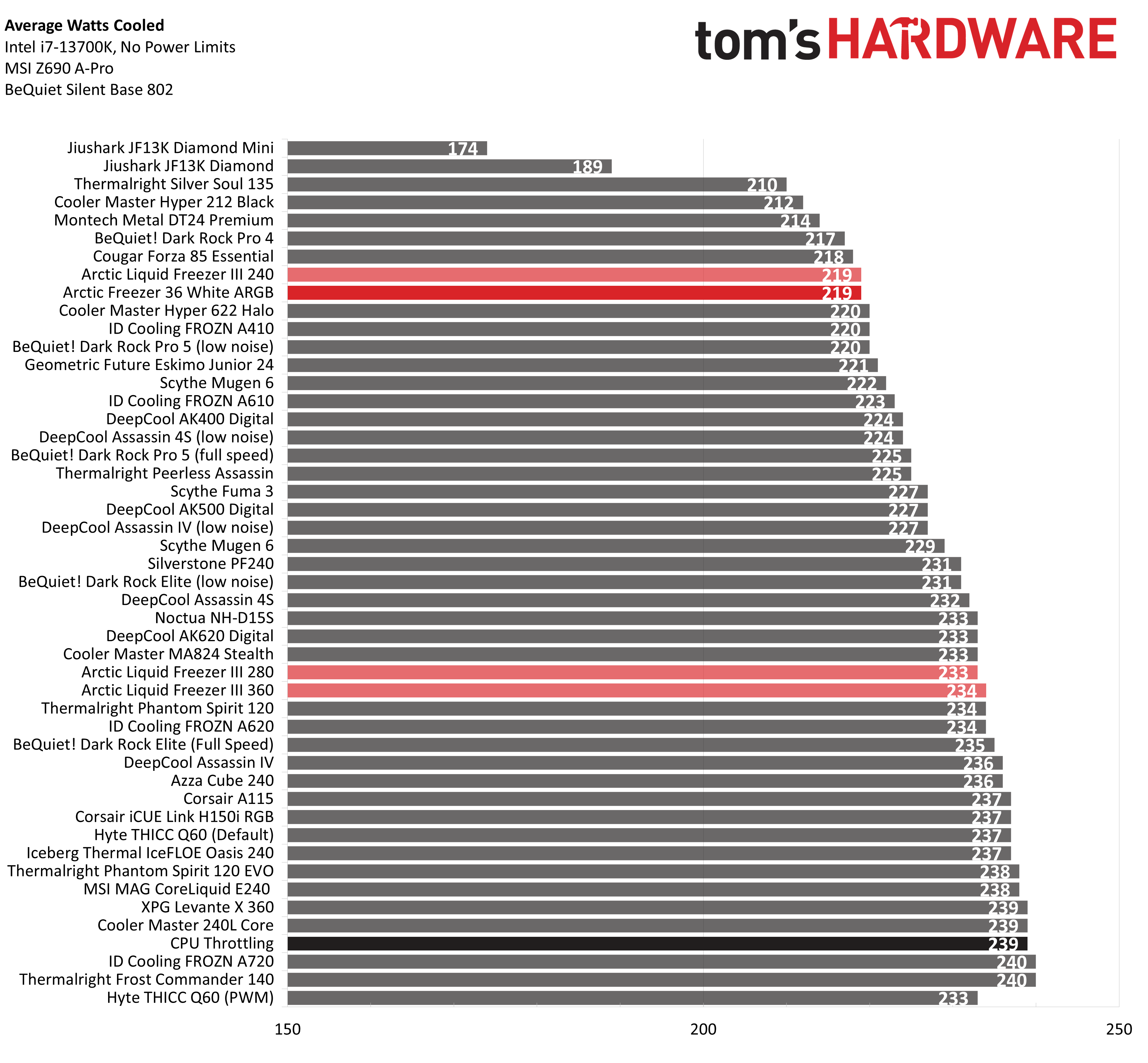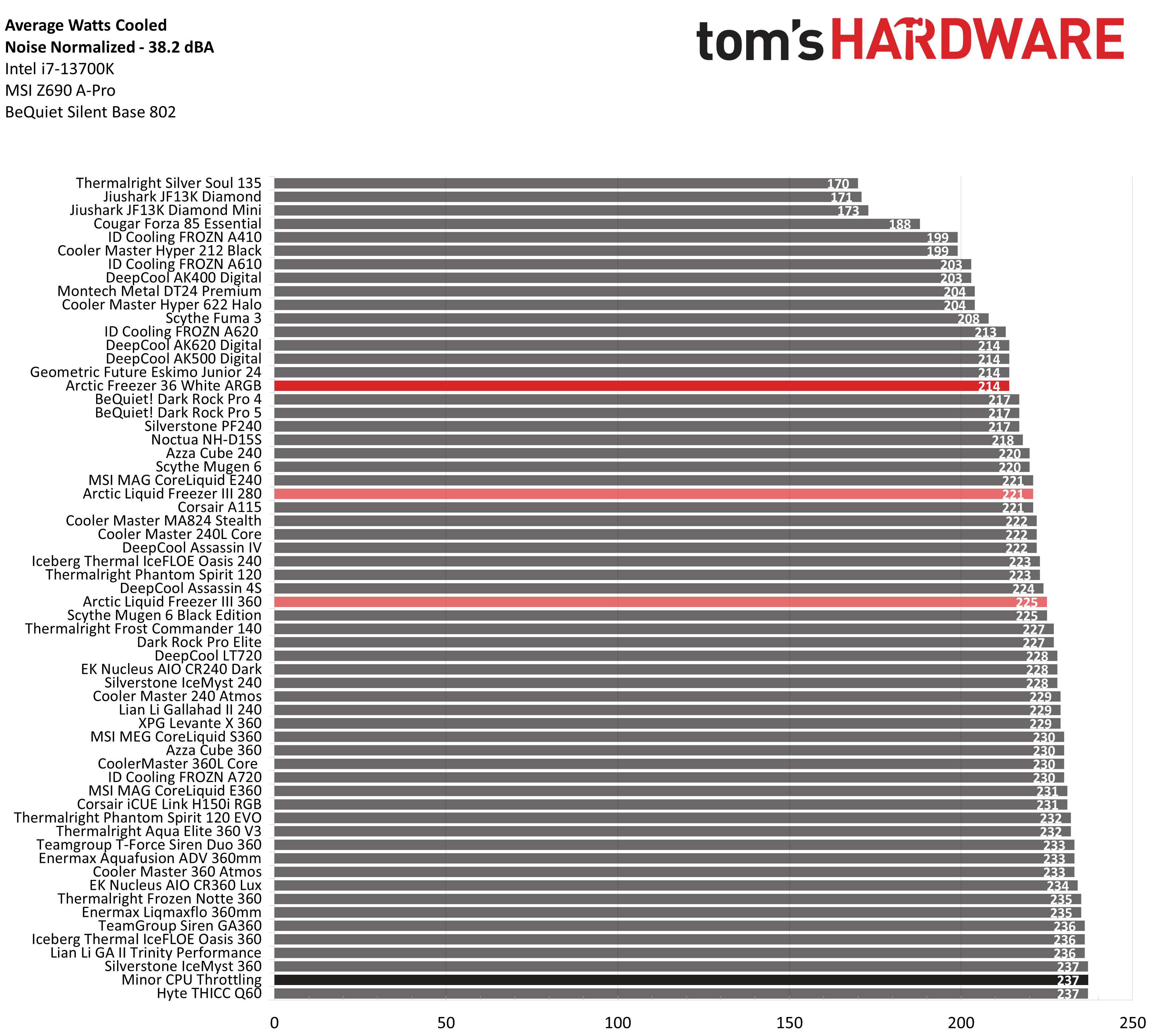Why you can trust Tom's Hardware
Thermal results without power limits
Without power limits enforced on Intel’s i7-13700K, the CPU will hit its peak temperature and thermally throttle with even the strongest air coolers. When the CPU reaches its peak temperature, I’ve measured the CPU package power to determine the maximum wattage cooled to best compare their performance. The results below do not include the best liquid coolers on the market, which are able to keep the CPU under TJMax (100C).
For a low-end cooler with only four heatpipes, Arctic’s Freezer 36 performed well. It cooled an average of 219W, which is slightly better than BeQuiet’s Dark Rock Pro 4 and equivalent to the performance of Arctic’s own Liquid Freezer III 240.
It achieved this level of performance with a noise level of 40.3 dBA. This is one of the quietest results I have from any air cooler, and is better than all but one of the results I’ve seen from liquid coolers.
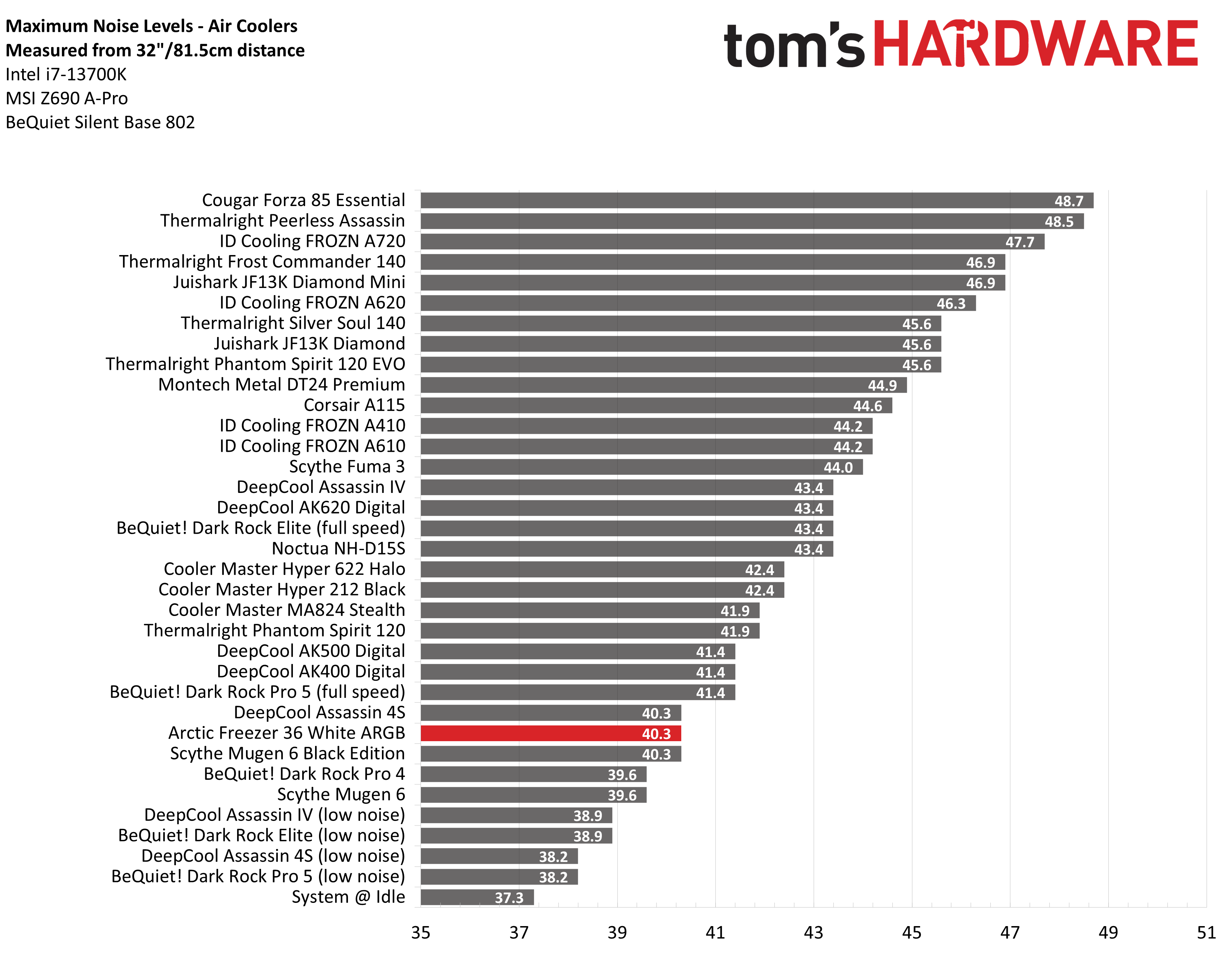
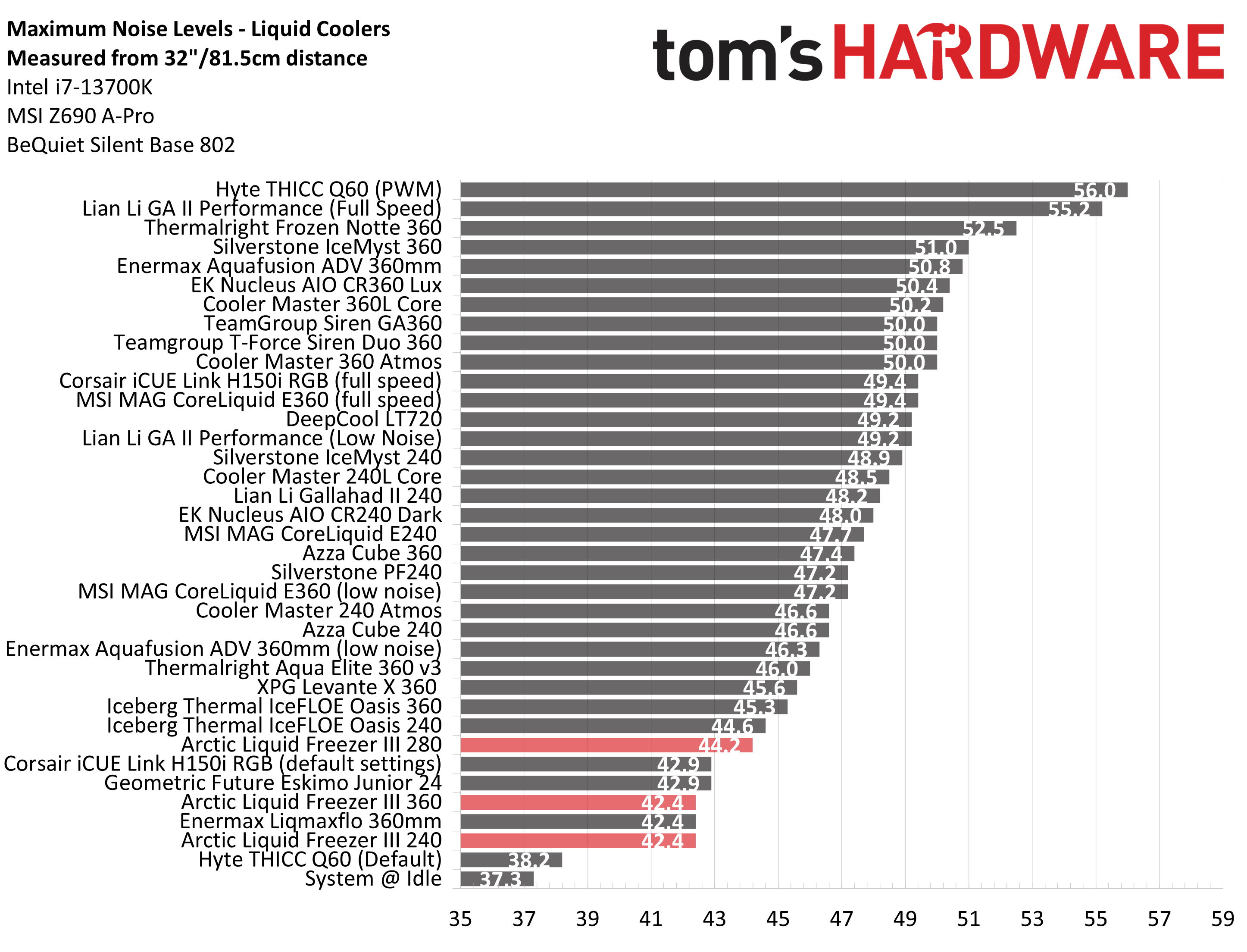
Thermal results with noise normalized to 38.2 dBA
Finding the right balance between fan noise levels and cooling performance is important. While running fans at full speed can improve cooling capacity to some extent, the benefits are limited and many users prefer a quiet system. With this noise-normalized test, I’ve set noise levels to 38.2 dba. This level of noise is low, but slightly audible to most people.
When set to a low noise level of 38.2 dBA, the Freezer 36 provides excellent results considering its price class. With an average of 214W cooled during this test, the Freezer 36 performed on par with both ID Cooling’s FROZN A620 and DeepCool’s AK620 – both of which are almost twice as expensive.
175W Cinebench results
Most coolers on the market can keep Intel’s i7-13700K under its peak temperature if the power consumption is limited, so for this test, we’ll be looking at the CPU’s actual temperature.
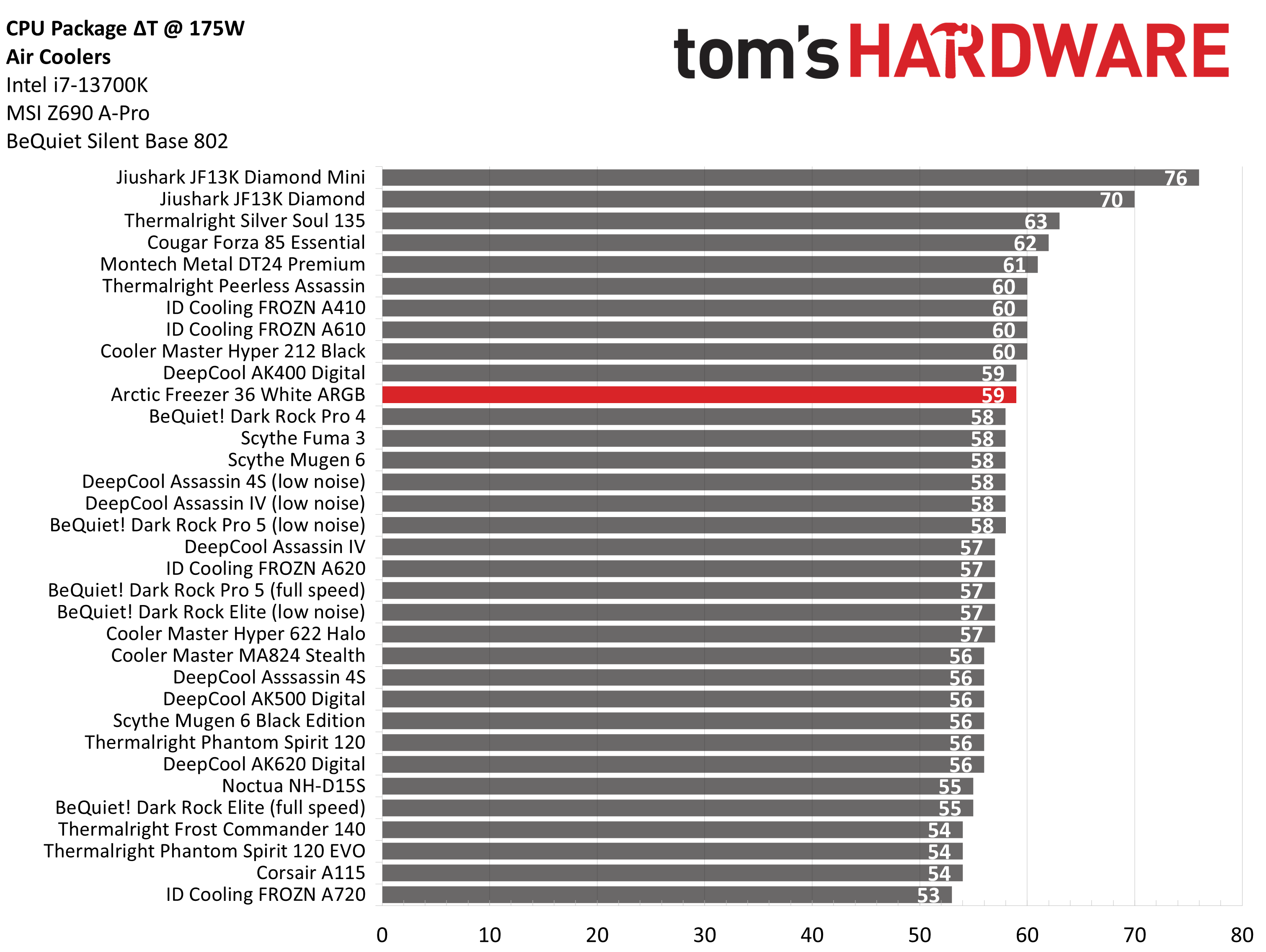
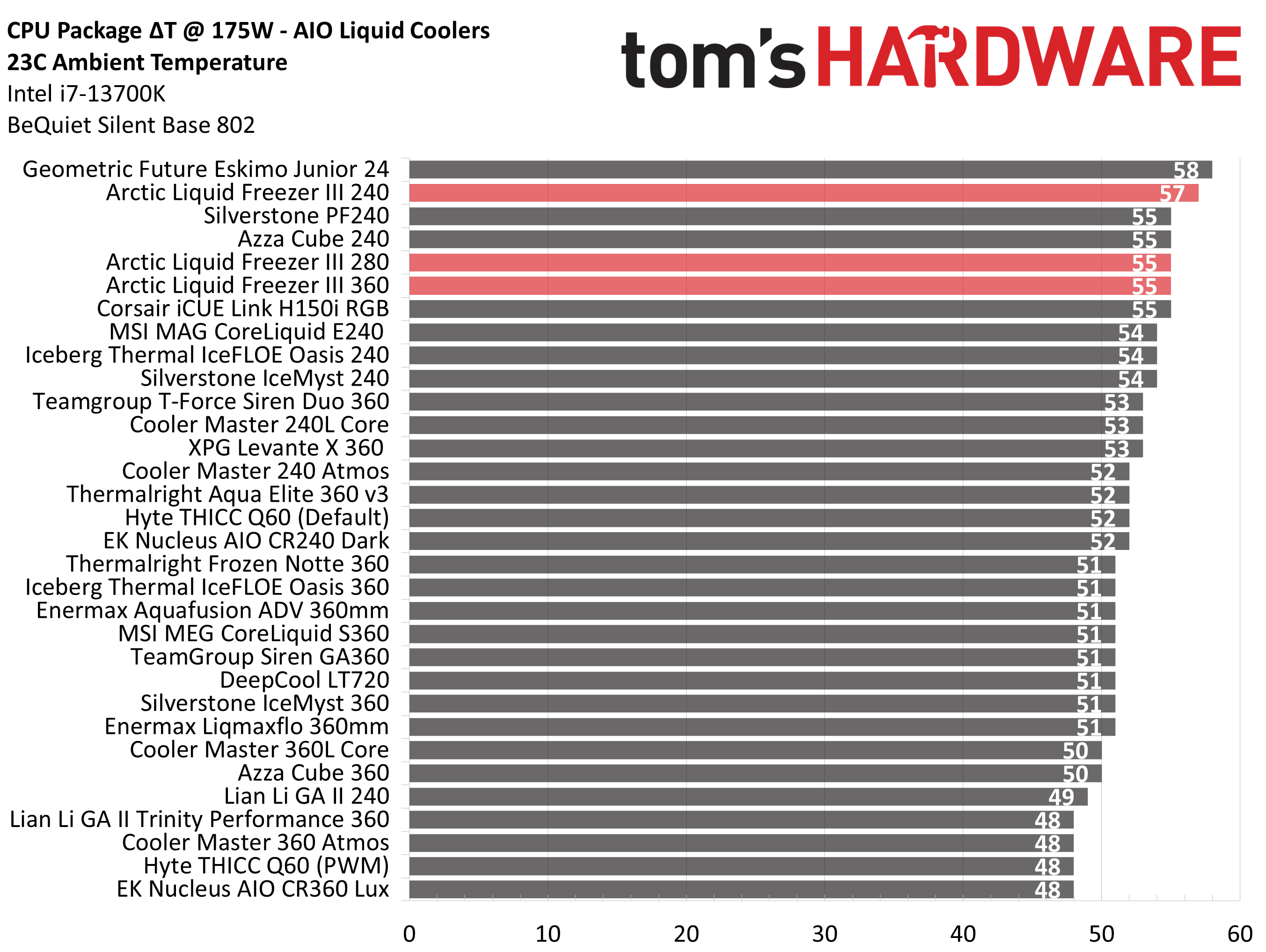
With a steady 175W load run on the CPU, the temperature averaged 59C over the ambient room temperature of 23C. This might not look impressive compared to the other results shown here, but keep in mind almost every cooler shown here is a higher-end, more expensive product.
Get Tom's Hardware's best news and in-depth reviews, straight to your inbox.
I generally consider noise levels more important here, and in this metric the Freezer 36 performs very well! With a measurement of only 38.9 dBA, the Freezer 36 is one of the quietest results I’ve had from any cooler – liquid or air – in this benchmark. When it comes to noise levels, the Freezer 36 is among the best coolers currently on the market. I’ve included the noise levels of liquid coolers by request for those who wish to compare, click the arrow on the results showing the air cooler noise levels to see them.
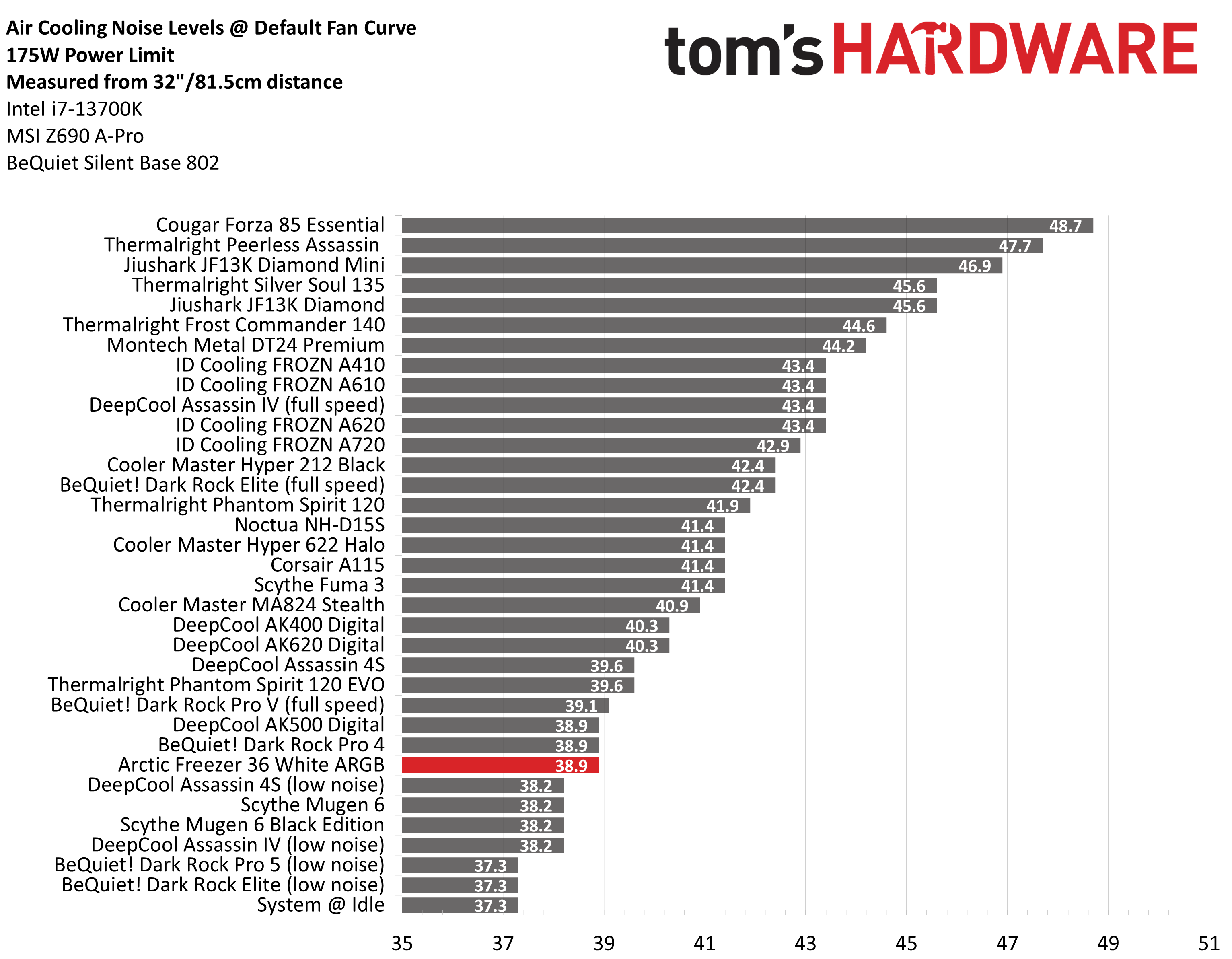
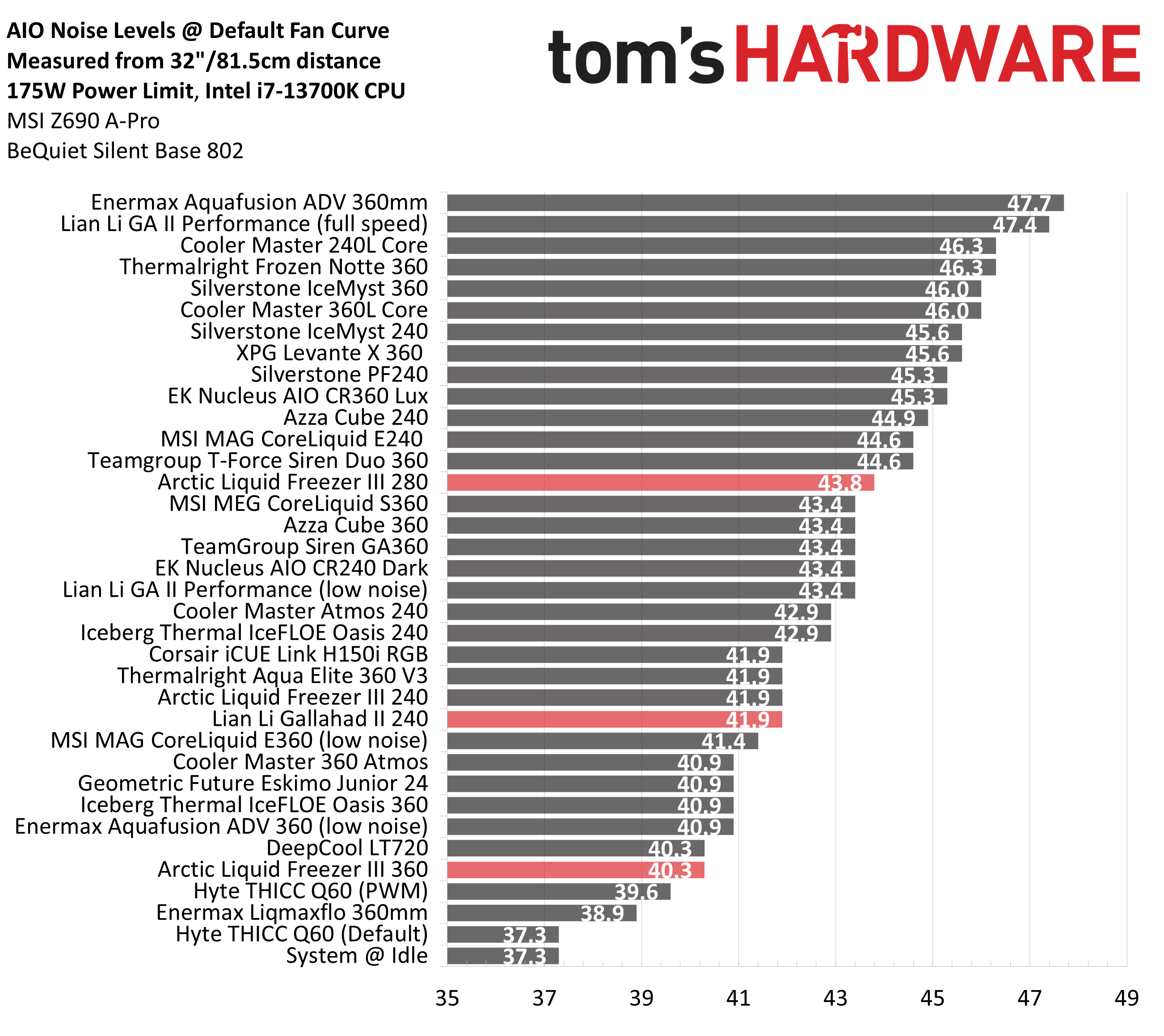
125W Cinebench results
The lowest power limit I test with Raptor Lake CPUs is 125W. This is a high enough limit to allow the CPU to maintain its base clock speeds even in the most intensive tests, and most coolers should be capable of keeping the CPU below TJMax (the max temperature before throttling) – even low-end coolers. The thermal performance of the Freezer 36 wasn’t one of our best performers, but it was on par with other coolers of its class – 1 degree behind the latest edition of Cooler Master’s Hyper 212, 1 degree ahead of ID Cooling’s FROZN A410.
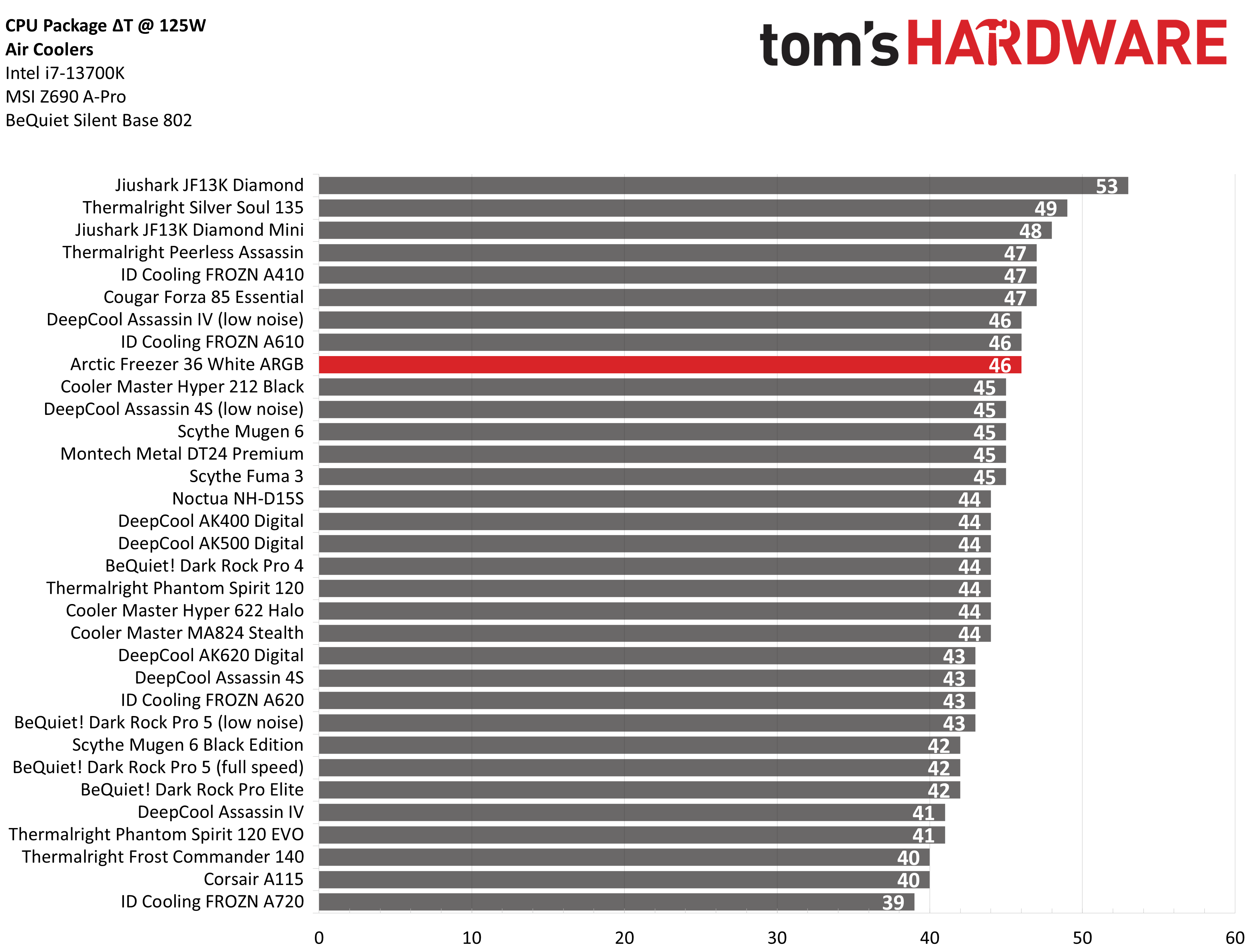
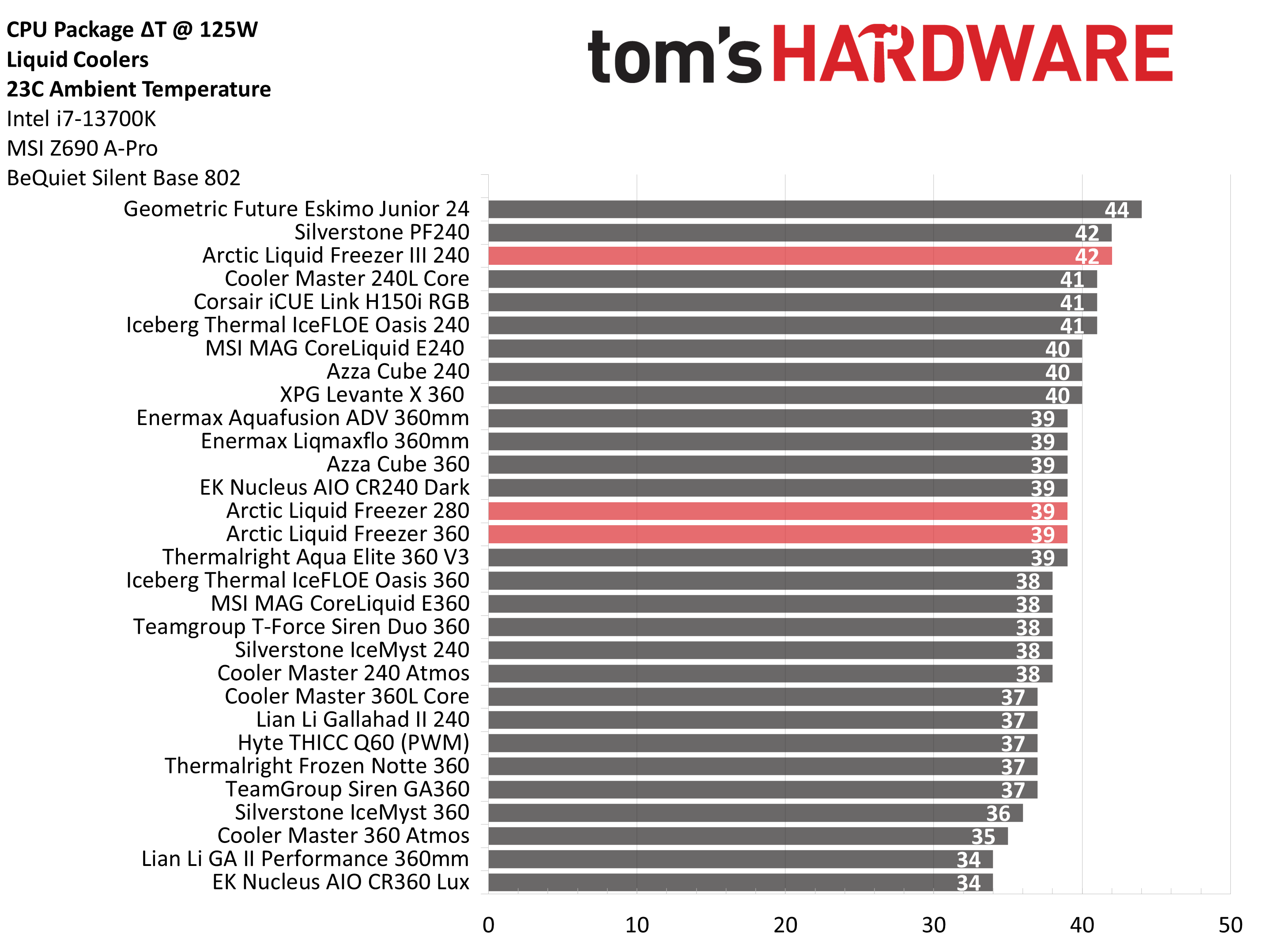
That said, thermals do not matter much in this scenario. Even Intel’s stock cooler can handle a load like this with ease. Noise levels, rather than CPU temperature, are the most important factor here – and the noise levels of Arctic’s Freezer 36 were perfect in this scenario. Reading 37.3 dBA, this noise level was equivalent to that of my system fans – indicating that the cooler ran quieter than my system at idle. As with our previous results, if you wish to compare noise levels to liquid coolers you can press the arrow button to see them.
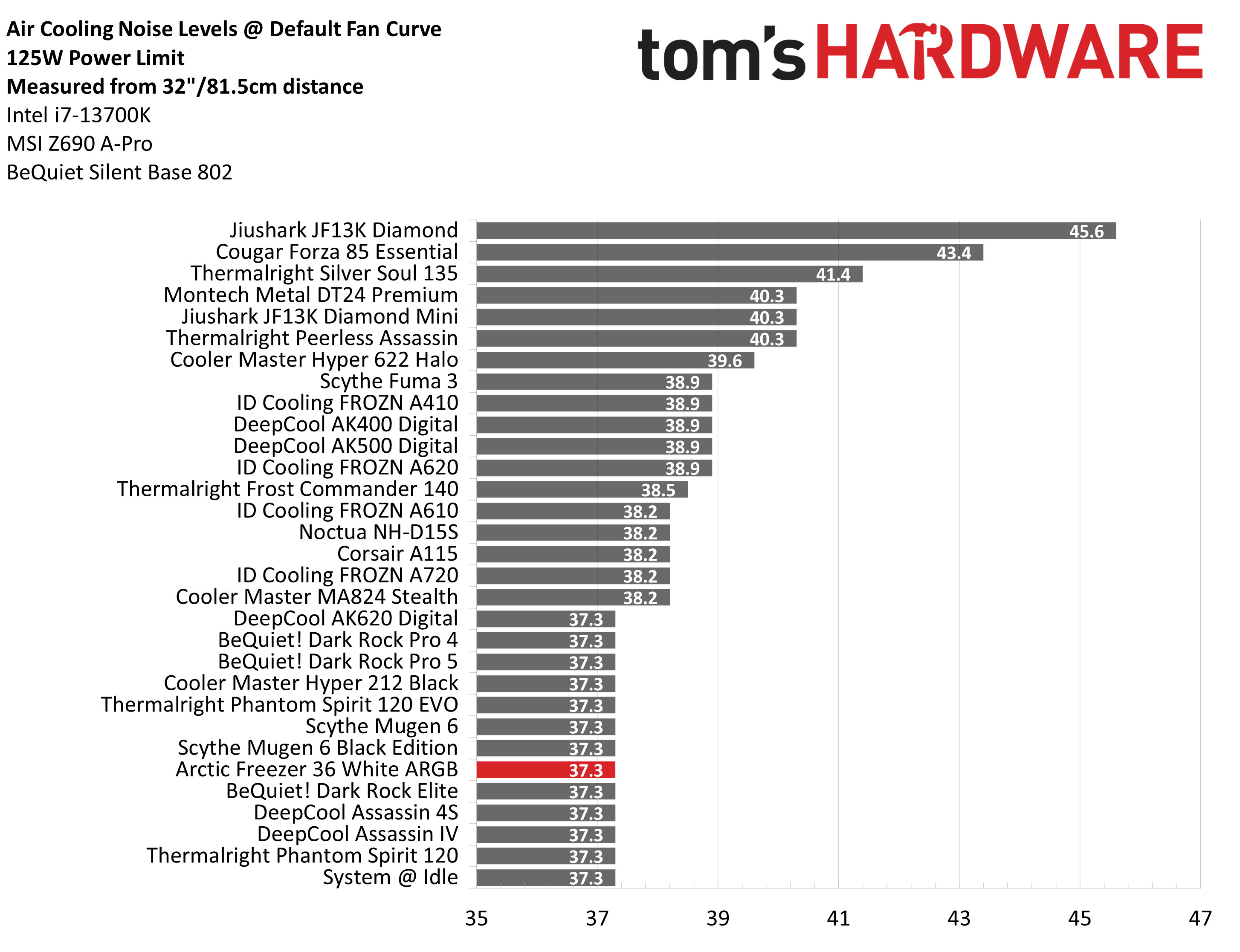

One more thing
There’s another way this cooler performs very well, but I haven’t previously collected data for it. If you attempt to run a maximum strength thermal load on Intel’s i7-13700K CPU, most air coolers will cause the CPU to almost immediately hit the maximum temperature of 100C and thermal throttle to some extent.
This doesn’t happen on Arctic’s Freezer 36, though. When I ran my tests, the cooler was able to keep the CPU under its maximum temperature for over a minute. For most common, bursty tasks, this means you’ll never run into a situation where the CPU doesn’t hold its maximum performance.
Conclusion
Arctic’s Freezer 36 has good thermal performance for its class and excellent noise levels, quieter than most other coolers on the market – and its low price won’t break the bank. The unique and innovative fan connection makes installation easier. My one and only complaint about the Freezer 36 is the forced use of a LGA 1700 contact frame on Intel systems.
MORE: How to Buy the Right CPU Cooler
MORE: How to Check CPU Temperature
MORE: All CPU Cooling Content

Albert Thomas is a contributor for Tom’s Hardware, primarily covering CPU cooling reviews.
-
dalauder The Vetroo U6PRO is also great in this price range. I'm not sure how the noise compares though.Reply -
Misiu Being priced equally or more expensive than Thermalright Phantom Spirit 120 it is a niche product for brand lovers. 6 Years warranty and MX-6 Thermal Paste are a great bonus. But if you can buy PS 120 or PS 120 EVO for the same money then it is no brainer. I used to have an Arctic Freezer 34 eSports Duo cooler which managed to cool 5800x with PBO at the time. It was a good bang for the buck back then. But the competition is different now. If you can buy Thermalright AssassinX120 R SE for 18Eur providing similar performance then you don't pay 38Eur for the Freezer 36.Reply
